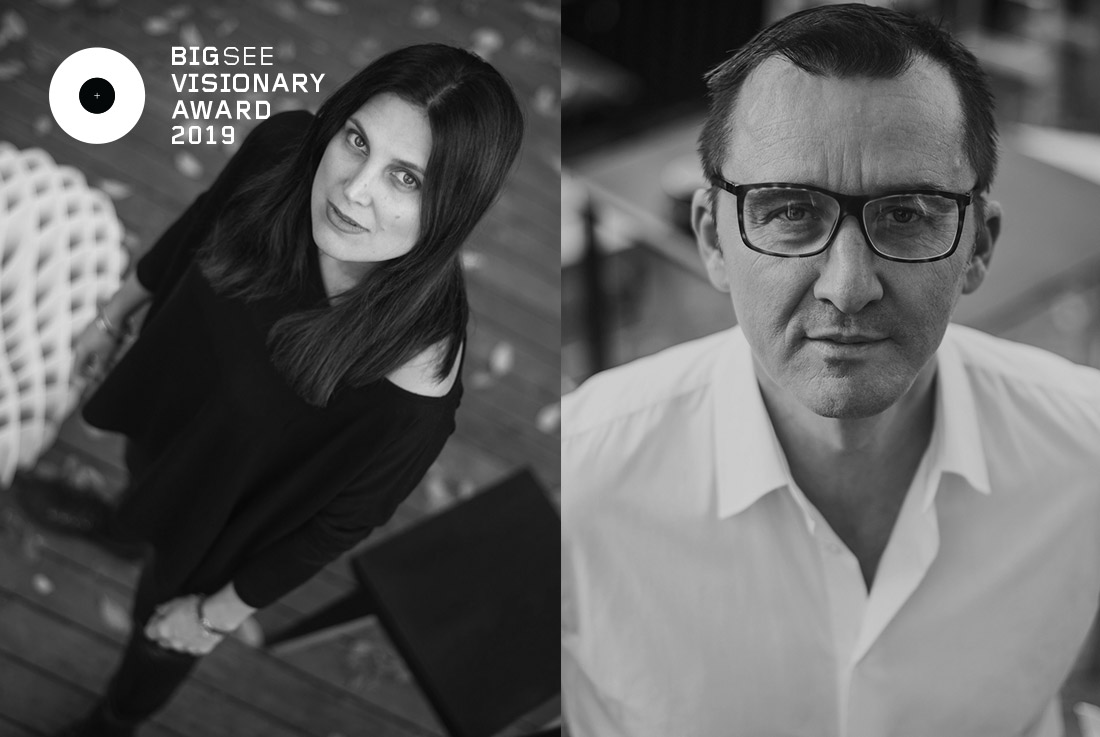
Photo: Marija Piroski
Jožica Brodarič, the award curator
„We have worked and lived together with thousands of other people who have been part of Mikser House. Throughout these years our activities have been carried out completely independently and without any institutional support, since we have always believed that culture should be based on certain self-restraint. Today, ten years later, we are back to the beginning again and looking forward to some new challenges. We are all gathered here today and we are proud of our ten-year history.“
The above introduction was written by Mr Ivan Lalić, the executive director of Mikser Festival and an associate professor at the Faculty of Contemporary Art in Belgrade, on the occasion of the Mikser Festival 10th anniversary and 17th anniversary of Mikser – a platform which stimulates a development of creative economy and helps to establish a dialogue among the contemporary global tendencies of domestic and regional practices.
The Mikser platform’s creative director and founder is Mrs Maja Lalić, a prominent architect from Belgrade. After completing her studies in Belgrade, she obtained her master’s degree from Columbia University in New York. In 2002, upon returning to Belgrade, she co-founded the Mikser creative network and reMiks Studio which has created some of the greatest architectural solutions in Belgrade in recent times.
Maja Lalić has been actively engaged in the Mixer Festival activities which have revived Belgrade’s cultural scene and attracted the world’s media attention. Besides, Mixer Festival has set up a borderless platform for the artists coming from the state and the region, and it has also been reflecting a fresh impetus of the Belgrade’s cultural scene.
The very first Mikser festival, placed in the surroundings of the iconic Žitomlin siloes, managed to send a positive message to the world by means of some carefully selected artworks, musical events and the accompanying programme. At the same time, a meeting of nationalist groups was taking place as well and it was defined by CNN as the „Clash of art and politics“.
The Mikser network detected the potential of the city quarter Savamala where the abandoned place was rented in 46 Karađorđeva street and which was, in 2013, turned into a cultural centre Mikser House. Over the years, Mikser House became a meeting place of the music, design and culinary culture of the city. Savamala developed into a notable area of the Belgrade’s art scene. Its existence, however, was at risk due to the vigorously determined building project „Belgrade on water“, a new residential-business quarter plan in the hands of the Arabic capital.
On account of the growing gentrification and increasingly higher rents, the small, creative Mikser team was forced to leave the building where Mikser House carried out its activities for 5 years. There was no mercy from the city authorities, therefore the Mikser team immediately closed its doors and left the premises.
The founders of the Mikser idea consequently decided to move Mikser House to another capital city of the former Yugoslav republic, namely to Bosnia and Herzegovina. Supported by grants and by means of the unconditional proletarian impetus of its founders, the cultural centre opened its doors in Sarajevo on 8 September 2017. The complex extended over more than 1300m2 and it contained a concert hall, an open-market area, a gallery and a cafeteria. The place was designed as a city where many projects would be initiated and accomplished, and such projects were meant to be providing new, brighter future to the young as well as giving hope for a better future of the entire Balkan region.
Unfortunately, due to the insufficient inflow of institutional funds and promised donations as well as the lack of time needed for a proper organisation, the project was not able to cope with the financial stress, therefore it was to be closed down by its main and most important founder Ivan Lalić who put an end to it by using the following words: “In my view, this type of a standstill indicates that it is absolutely essential to develop public-private partnerships and the economics of division of resources.“
By virtue of its unstoppable determination, the Mikser team managed to open, on 8 August 2015, a humanitarian aid centre for the refugees arriving to Belgrade on a daily basis. Food, clothes and hygienic accessories were collected in Mostarska street in Belgrade where medical assistance, bathrooms with showers and washing machines were also provided. Besides, children’s workshops were organised and points for the refugees’ social life and entertainment were set up. In spite of the data showing that the centre was visited by 110,000 refugees and that there were 1,200 volunteers from 58 different countries working with the migrants, the Mikser place (Miksalište) had to close its doors and was obliged to do so 48 hours after having received the notification that the following day, on 27 April 2016 at 10 am, the demolition works of the building in Mostarska street 5 were about to begin by reason of the project „Belgrade on water“.
Not long after the first Mikser place (Miksalište) had been demolished, the relentless team, assisted by some volunteers and partner organisations, managed to find a new place which was also located in the Savamala area where, once again, a humanitarian centre for refugees and migrants was opened. Until March 2019, the new humanitarian centre provided an assistance to more than 300,000 people and was classified by many as one of the most humane centres of the Balkan Refugee Trail. On account of the centre’s activities, the team encountered many difficulties, including the xenophobia of the neighbouring residents. All those issues were nicely illustrated in the script of Ivan Lalič’s new theatrical performance „Love in Savamala“, the play which has been attracting theatregoers to Zvezdara Theatre for many months. After the four-year-period of the Miksalište activities, the state finally admitted the necessity of the existence of such centre and has agreed to take care of it. The Mikser team was awarded the European Citizenship Award for the Miksalište project.
This year again, Mikser put forward the question regarding changes in society which was raised on 24 and 25 May in the framework of the Mikser Festival and Conference. This time Mikser addressed the concepts of sustainable development and global awareness. A public debate among experts and legislative bodies was initiated and the media was invited to become involved in the process which is aimed at changing the awareness and practices in order to protect and renew living resources.
The following statement, expressed by Ivan Lalić in one of his interviews, nicely summarizes the viewpoint shared by the entire Mikser team: „I have never believed in the end times, and I still do not believe the world is about to end.“
Written by: Ivana Ljubanović
An interview with Maja Lalić and Ivan Lalić:
Ivan, what attracted you to start working with the Mikser team? Was it Maja who aroused your curiosity about this type of art and activities or had you been involved in this field of expertise before?
Ivan: As early as in 2008 I contacted Maja and suggested to her that we should start working on the analysis of a concept of a Novi Sad film festival. At that time, I was the director of Sterijin pozor theatre festival, the president of Exit music festival, and a well-established playwright. Maja enriched all those activities by bringing in the magic of design. I instantly fell in love with her and everything she was involved in, and thus I actually became a Mikser member “through connections.” Since then, we have been sharing the good times and the bad times. Activism is embedded in our DNA. I worked for the Red Cross during the 90s in former Yugoslavia, until I got wounded in Sarajevo. Later, I dedicated four years of my activities to the fight against corruption in public sector in post-Milosevic Serbia. Afterwards, we initiated the activities related to more human cities and more accessible culture by means of the Mikser Festival and Mikser House projects. Besides, we also launched the revitalization process of various industrial areas such as Žitomlin, Savamale and donji Dorćol. We also established a support centre for refugees from the Middle East…
Due to the fact that you are partners in personal and professional life, do you consider that an advantage or do you think it would sometimes be better to have your personal and professional life separated?
Maja: I have always been dreaming of having my personal and professional life intertwined in a passionate manner and I cannot think of a different constellation. Maybe that’s why I have always tried to avoid conventional duties, office work and hierarchical workplaces, valuing, above all, freedom and creativity and some tangible results. Ivan and have just clicked somehow, in love and professional life, and I see it as a double life “bingo” which has provided a creative environment for our children who teach us and who have also opened some new aspects for us.
Ivan: It is certainly an advantage. Our personal life is very harmonious, but in our professional life we have disagreements on a daily basis, at least five times per day, which certainly brings some creative results. Bearing in mind that we have three children, I do not know how we would function if we did not work together.
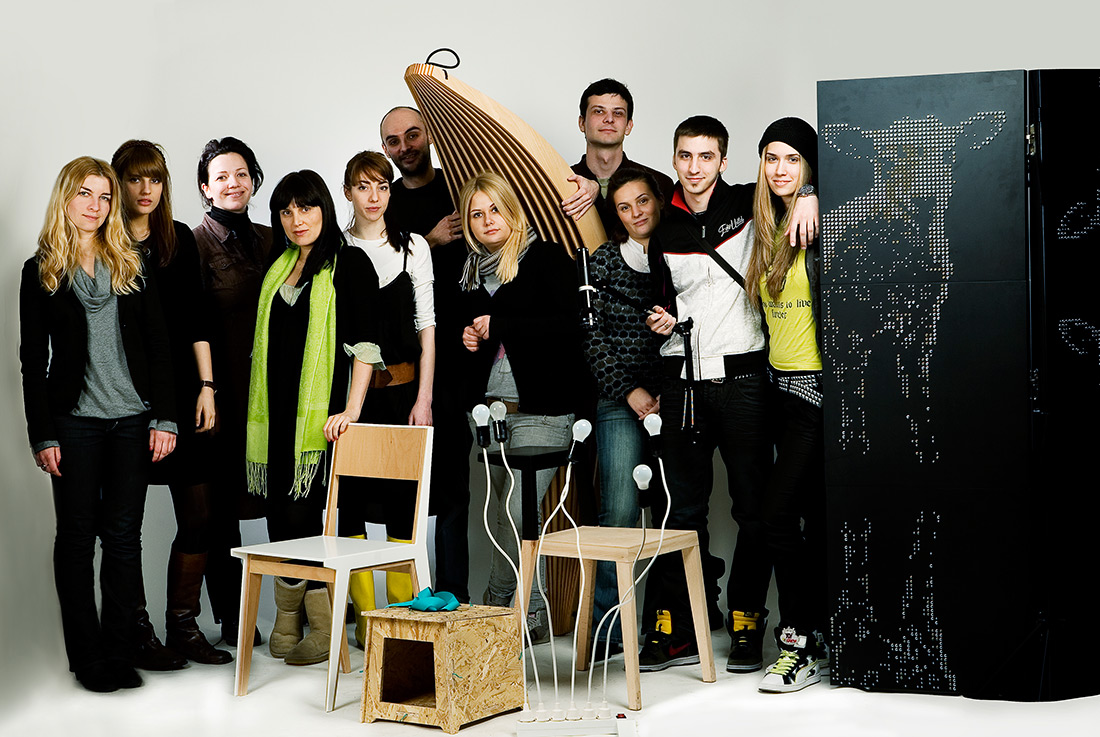 Young Serbian Designers
Young Serbian Designers
Your work has been related to the region. It seems that you do not see the boundaries. This probably makes you free, maybe even pushes you forward. Do you think that there are too many of such boundaries? Do you think there should be fewer of them?
Ivan: We both have always been and we remain very pro-Yugoslav. We believe that this is our natural and logical environment for creativity, interactions, friendships, work. We bring a lot of emotions in everything that we do. I am truly inspired by the cities such as Rijeka or Ljubljana, Skopje or Sarajevo. And we both possess that specific type of excitement which the South Slavic nations felt before the unification in 1918. We have never stopped being Yugoslavs. It was just a formal separation.
Maja: The Young Balkan Designers initiative was created on the basis of the need that the mental environment of the region should become interconnected and expanded (from Vienna to Istanbul), thus making the Balkans the centre of creative activities. Various exchanges of the young people in the Balkans after all the war nonsense shall be the only sensible thing that our governments should be focusing on, but these very projects are the ones, however, which remain in the vacuum, outside all the national strategies. Luckily, thanks to the organisations of civil society, various informal groups, cultural organisations, volunteers and numerous enthusiasts, the projects related to connecting people have been born and implemented, and I sincerely hope there will be more and more of them.
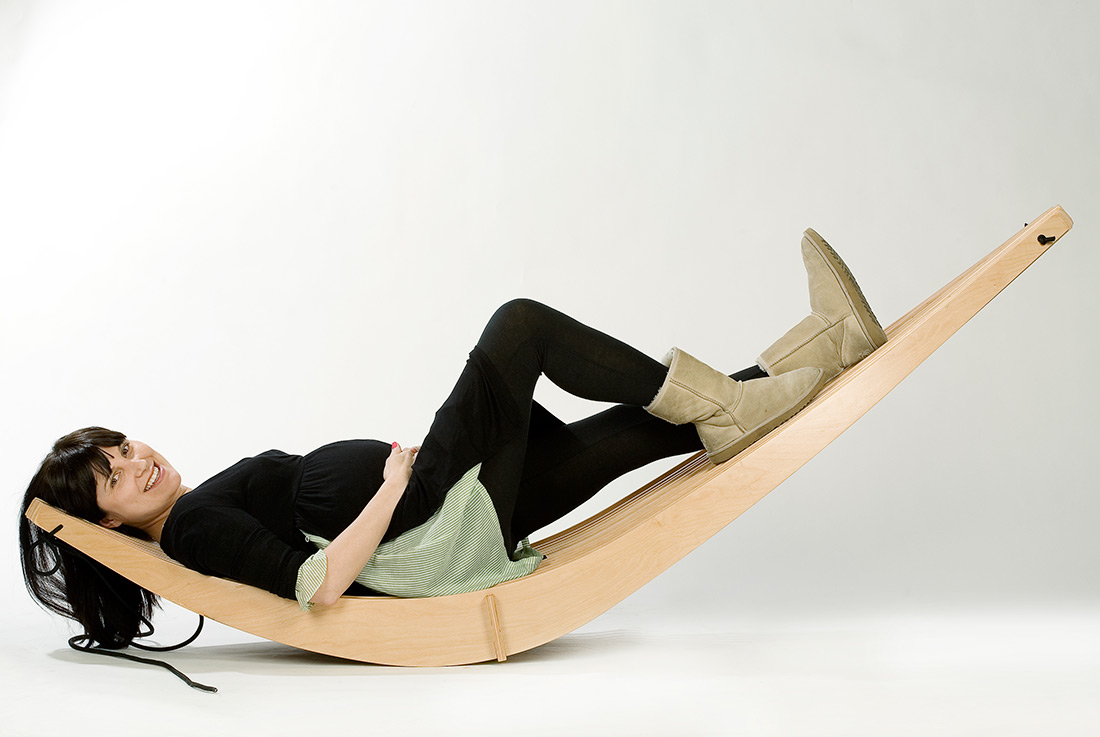 Young Serbian Designers
Young Serbian Designers
Why did you select Sarajevo as the new seat of Mikser House? Why not some other city?
Ivan: I am personally very attached to Sarajevo. I was there when the city was bombarded. I helped people there until I got heavily wounded. A young Moslem soldier saved my life. For me Sarajevo represents a metaphor of that country. We went there in search of this emotion. Maybe we should have been a bit more rational. I have also visited the mayor of Ljubljana Zoran Janković. We, namely, wanted to establish Mixer House in Ljubljana as well. At that time, we did not have sufficient energy and financial resources. However, things always fall together somehow. I hope that we will be able to develop some new projects in Slovenia.
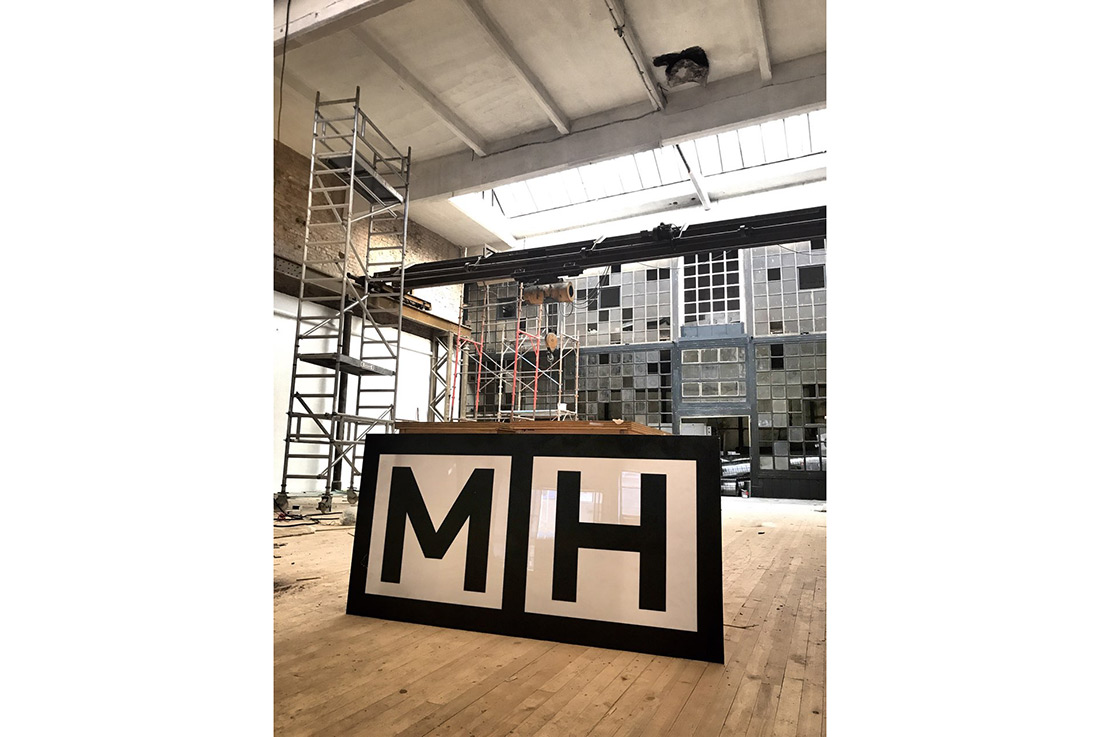 Mikser House Sarajevo designed by Maja Lalic and her Remiks studio
Mikser House Sarajevo designed by Maja Lalic and her Remiks studio
Do you ever have a feeling that you have been affected by the breakup of Yugoslavia and the transition-related changes in the political regime?
Ivan: No, not at all. We never agreed with that breakup and we are proud that there have been no changes. We have so many great friends and work colleagues in the region. They are our precious treasure and they represent the essence of what we do and what we live for.
I suppose that you must have many like-minded people. Are they individuals or organisations similar to yours?
Ivan: The format itself is not that important. Both of them. What is truly essential are the efforts to create a critical mass that shall contribute to positive changes. If like-minded people can be found in Zagreb, Ljubljana and Sarajevo, then this can represent a serious front line and a serious threat to the retrograde Balkans.
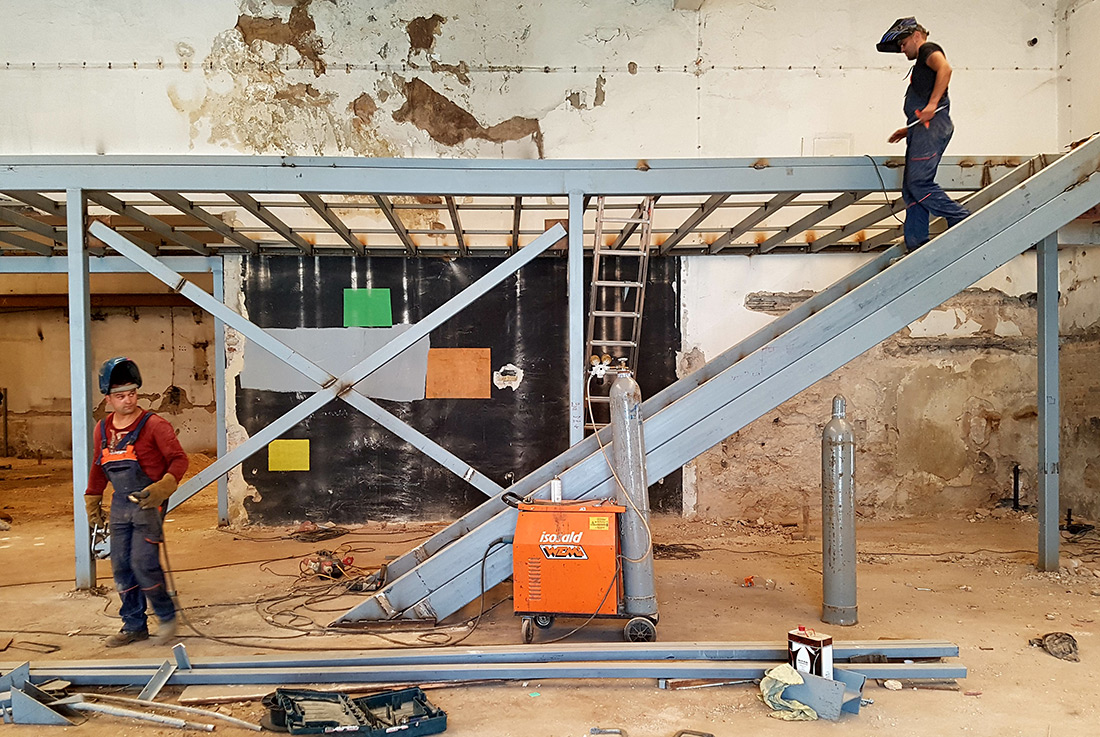 Mikser House Sarajevo designed by Maja Lalic and her Remiks studio
Mikser House Sarajevo designed by Maja Lalic and her Remiks studio
Your work has constantly been somewhere on the road between financial sustainability and political disagreements. Do you possibly feel that municipality and state authorities have changed their attitude to your work?
Maja: Yes, we can feel such changes. We are not an “ideal partner” for the current political authorities in Serbia, but we cooperate very well with individual institutions working in the domain of our expert activities, primarily in the area of sustainable development where we have been very active in the last two years. However, the general situation in Serbia is really concerning, especially in the area of culture that should represent the field of freedom. That freedom has now, unfortunately, been threatened and we share the destiny of an independent sector that is trying to retain its integrity in extremely unfavourable social and economic conditions.
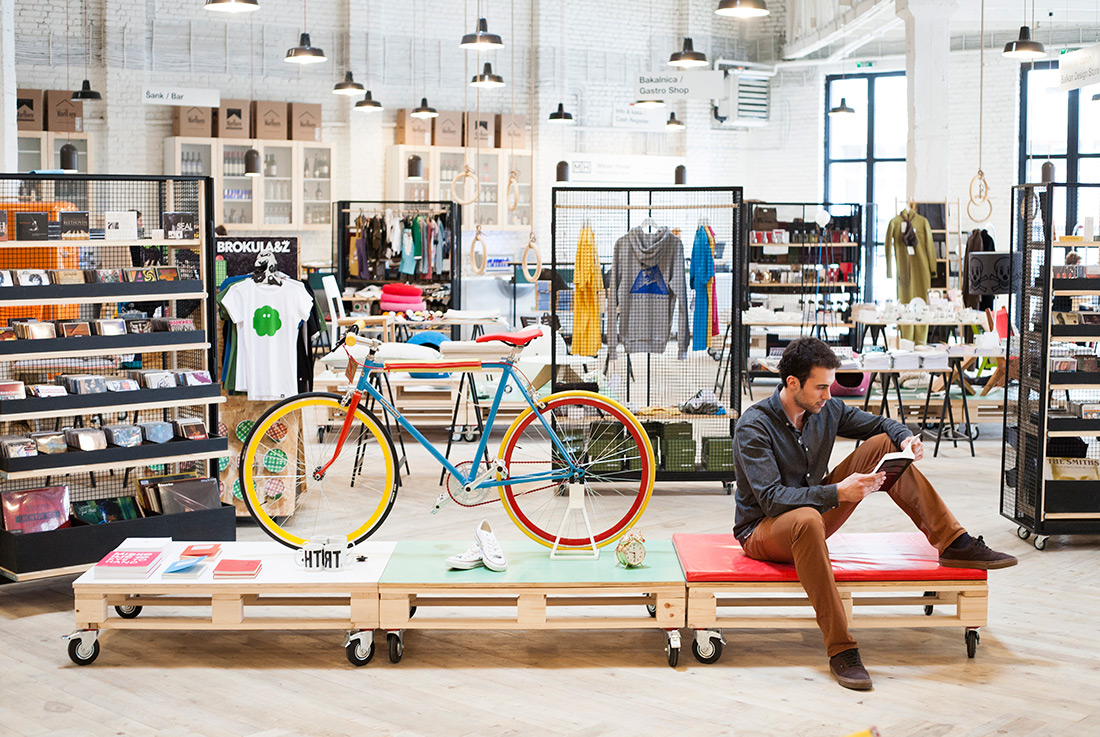 Mikser House Belgrade, designed by Maja Lalic sudio Remiks
Mikser House Belgrade, designed by Maja Lalic sudio Remiks
Can you describe your attitude to the “unavoidable destiny” of Savamala quarter. I assume your views on that are similar to the views of many other people from Belgrade. Are revolt and resistance still present in the architectural circles or are they slowly diminishing?
Ivan: Resistance is still present, however, it is in danger of becoming its own goal per se and that everything becomes one useless monotony. Savamala has been stored in a safe place. In our hearts.
Maja: Yes, Savamala remains in our hearts, but it also still remains in the annals of the urbanistic paradox. The architecturally knowledgeable experts, namely, still cannot get over the project, whereas the pragmatic friends on the other side of the value system have got involved in various projects trying to prove that it is a negative example of investment urbanism which is being studied in at least ten different world universities.
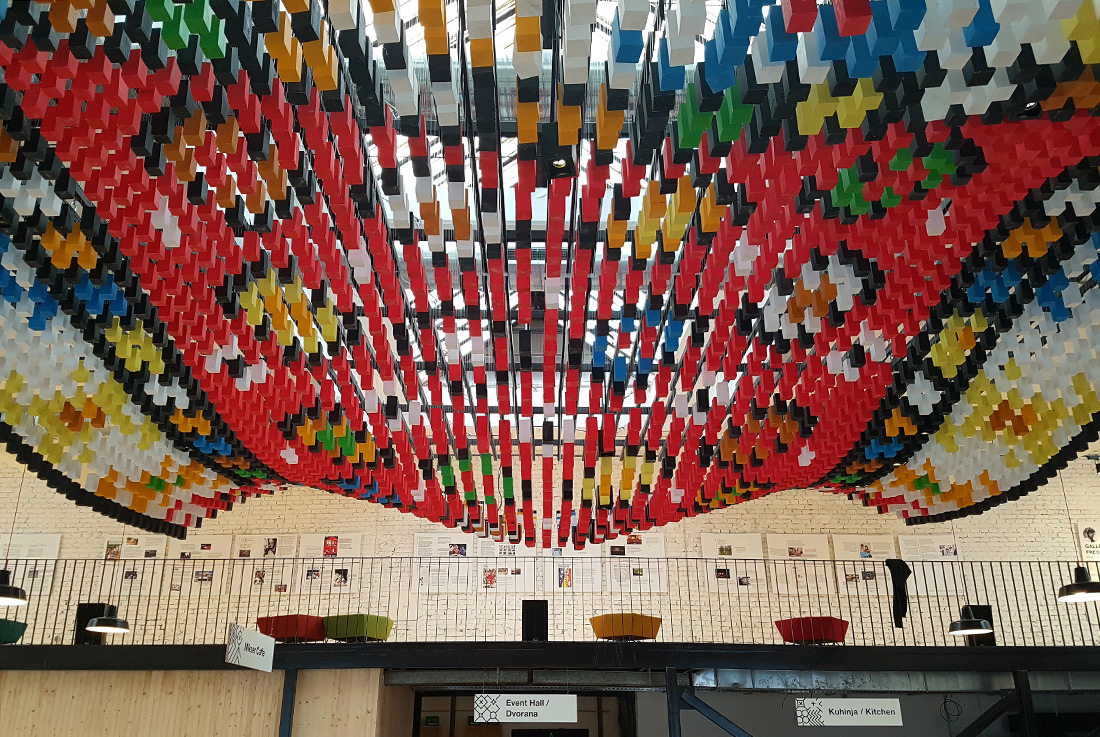 Mikser House Sarajevo designed by Maja Lalic and her Remiks studio
Mikser House Sarajevo designed by Maja Lalic and her Remiks studio
How do you organise your time since you are both involved in so many different activities? Ivan, how do you manage to bring into line theatre, university teaching and Mikser projects? Maja, do you still manage to find time for classical architectural planning and design?
Ivan: This is a great question. I get up at five a.m. every day. Then I write for two hours, and afterwards I take children to school, which is followed by Mikser meetings and duties at the faculty. Even I myself am not sure about how this is possible. But apparently it is possible :)
Maja: For more than 10 years I have been working with and meeting some truly exceptional people from various walks of life who are pushing the boundaries of city planning, citizen participation, sustainable architecture, communities, design-oriented social impact … I frequently ask myself – what do classical planning or design represent today? For me the space itself long ago ceased to represent only volume or a sum of materials. Instead, it represents some kind of a scenario involving a change for the better and it also represents an inspirational experience. In the last five years I have had the privilege to be involved in the projects such as Mikser House in Belgrade and Sarajevo and I have participated in those projects as both – an architect and a client. It is very economical in terms of meetings :) After the Savamala revitalisation experience and numerous projects with the local community and on the basis of my long-time interest in sustainable principles of urban planning and cooperation with the Blue Green Solutions initiative, many innovative international projects related to the area of urban planning have been initiated. Architecture and interior design certainly remain my “first love”, however, the project needs to contain certain chemistry that brings an important contribution and adds value to the society.
Can you think of an important event that really touched you in your life?
Ivan: When I saw a woman from Afghanistan walking to our “Miksalište” refugee centre holding a baby that had just been born somewhere between Negotin and Belgrade. That event also served as an inspiration for my performance “Love in Savamala” with which I returned to writing after having worked in cultural management for more than 10 years.
Maja: I will be very personal at this point – the moments when I became mum!
You have organised the Young Balkan Designers exhibition. Do you think that young people need more support to start their work. Namely, I sometimes think that, due to all these various competitions and benefits intended for the young, it seems that more senior creators have become completely forgotten. Have you ever been thinking about the active support for the artists who are not that resourceful in their work, especially in today’s digital age.
Ivan: Thank you for that wonderful question. Yes, we have already been working on some projects intended for more senior creators. As regards music, for example, we have established the band “Savamala Old Boys”. I find helping more senior creators truly inspirational. At the moment I am writing a play in which all the protagonists are more than 70 years old. Thank you for the OBD idea – Old Balkan designers :)
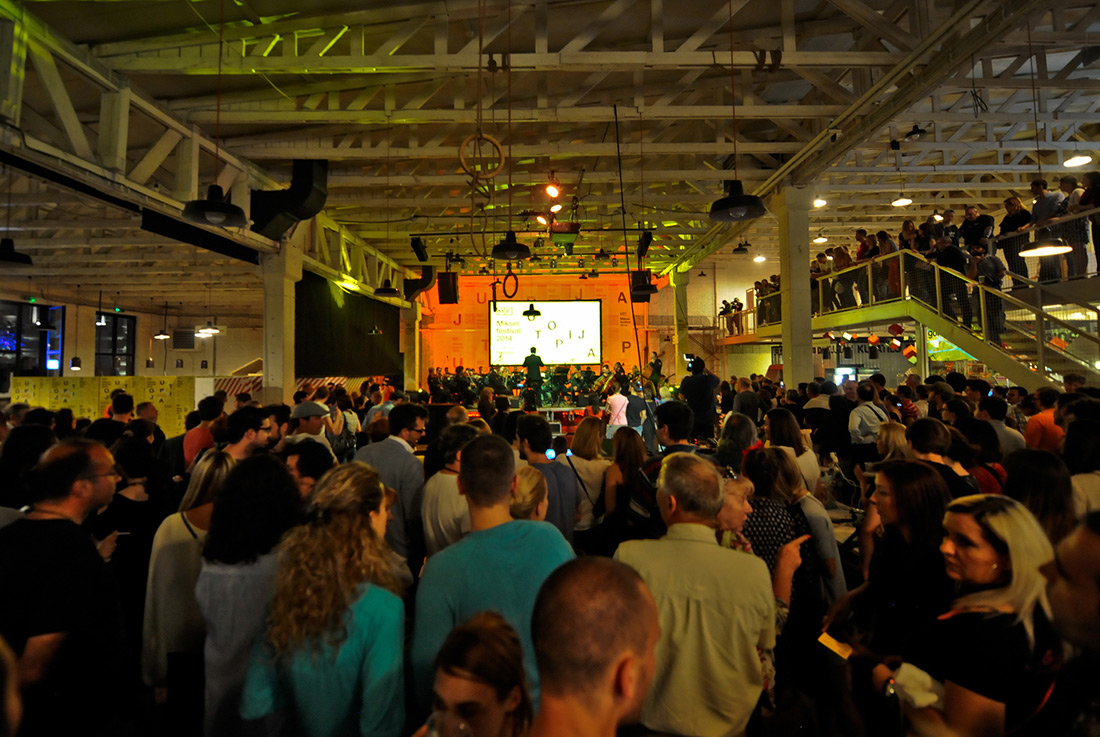 Mikser House, foto Bojana Janjic
Mikser House, foto Bojana Janjic
What are you planning to do when you are retired? Are you looking forward to the possibility of having time for the things you are not able to do today? :)
Ivan: I would like to write novels and plays. This is all that I want.
Maja: I am planning to read everything that I missed. I am going to catalogue an entire library. And I am definitely going to occupy myself with urban gardening. On the terrace, on the roof, in the yard. Well, I will probably end up in some kind of cooperative – spreading among other pensioners the idea of how good it is for the bees or how effective it can be against urban heat islands :) They say that mature years come when one is becoming interested in plants, which I actually see as new youth.
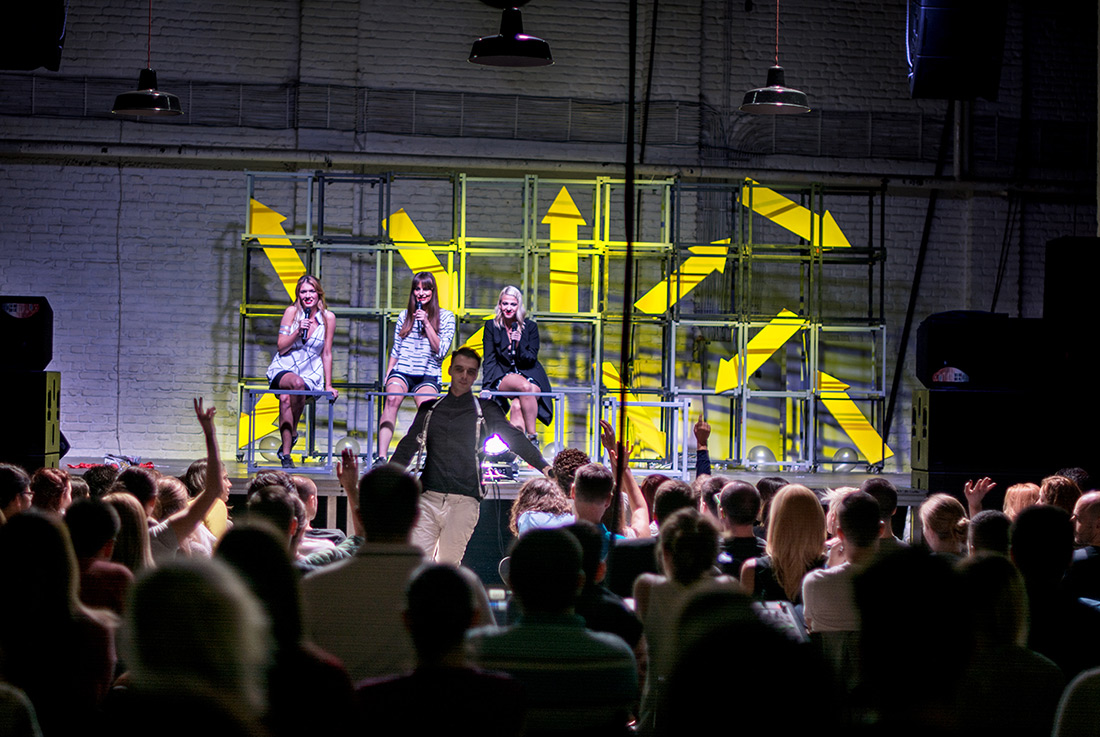 Mikser Theater – WTF Am I Doing Here
Mikser Theater – WTF Am I Doing Here
What were your childhood years like? Can you draw any parallels between your childhood and adult years?
Ivan: I played basketball until I was fifteen. I was not interested in anything else. And then my older sister, who later, just like Maja, became an architect, took me to the museum and this is how it all started. But I still adore basketball. I cannot wait to see Luka Dončič in the new season. I think that Luka Dončič and Nikola Jokić will leave permanent traces in NBA.
Maja: My childhood and adolescent memories are still very vivid and now, when I have my own children, I feel that this part of me will be preserved forever. I have a feeling that nowadays, when I am with my children, I am more childish than when I was 7 or 10 years old. I was a responsible and very serious child at that time, and I sometimes resent myself for that. At the age of four, I was a poet-to-be, and some of my poems are still being recited in my family circles :) I remember the first years of my life in Smederevo town as the years of the freedom of movement, independence, safety, playing in the streets, which is something I am trying to make available for my children nowadays as well in spite of all the existing safety precautions.
What does a weekend represent to you?
Ivan: We do not have such feelings. We do not have weekends.
Maja: This topic is related to some important turns :) Fewer “parachute jumps”, that is all those activities with which we are trying to defeat the routine of working Sundays and to treat ourselves and children with “experiences that shall be remembered”, and more cosiness and warmth, films, and finally, a bit of rest.
Do you prefer tea or coffee, snow or sea?
Ivan: Coffee and sea.
Maja: The same applies to me.
You have been socially extremely engaged and exposed. Do you ever feel like distancing yourself from everyone and only enjoying some peaceful solitude?
Ivan: Yes, certainly. I have a wonderful family estate in Rudnik highlands. Whenever we can, we escape there. When I write, my family allows me to go there alone. To feel and to think there.
Maja: I take such opportunities during my business trips, conferences and meetings in another city. In spite of my very intensive schedules, I always find time to be on my own and ask myself about how I feel :) My favourite song of the band Using Weapons to Fight Kidnappers is about that topic: “Yesterday I met myself, I am planning to go somewhere, I do not now where, I asked myself, we had a lovely conversation …”
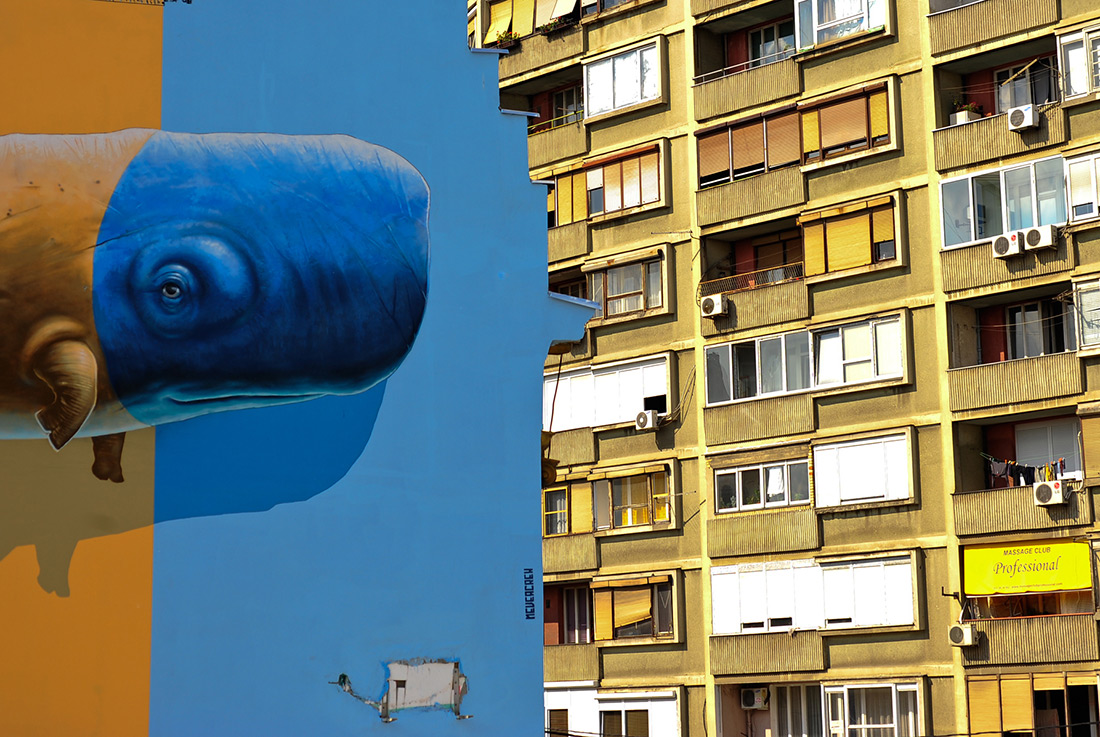 Mural by Nevercrew, Mikser Festival, Savamala, foto Bojana Janjic
Mural by Nevercrew, Mikser Festival, Savamala, foto Bojana Janjic
What is your opinion on the tensions in business world? What is it that hurts you most?
Ivan: Switching duties. Multitasking takes its toll. We, creative people, do not really like planning things ahead. However, in today’s fast-paced world, planning is becoming a precious talent which we shall all learn to master.
Maja: I have a frequent feeling that 24 hours is not enough to accomplish all the planned tasks and super-expectations. It is a privilege and a curse to follow all our interests in the era of super-specialisation. When I find myself caught in a swirl of a few intertwined projects, I often think of a saying “May you live in interesting times”, for which I am not sure whether it is a curse or a blessing, since, really, everything I ever wanted from life was that it should be exciting and interesting and my expectations in this part have been fulfilled. If only the planet was rotating a bit more slowly.
Maja, who is your favourite architect? And Ivan, who is your favourite writer?
Ivan: Mario Vargas Ljosa, Gogolj, Hrabal.
Maja: Eileen Gray
If you could start your career again, would you choose another profession?
Ivan: No, I definitely wouldn’t.
Maja: No. Maybe I would be a singer. :)
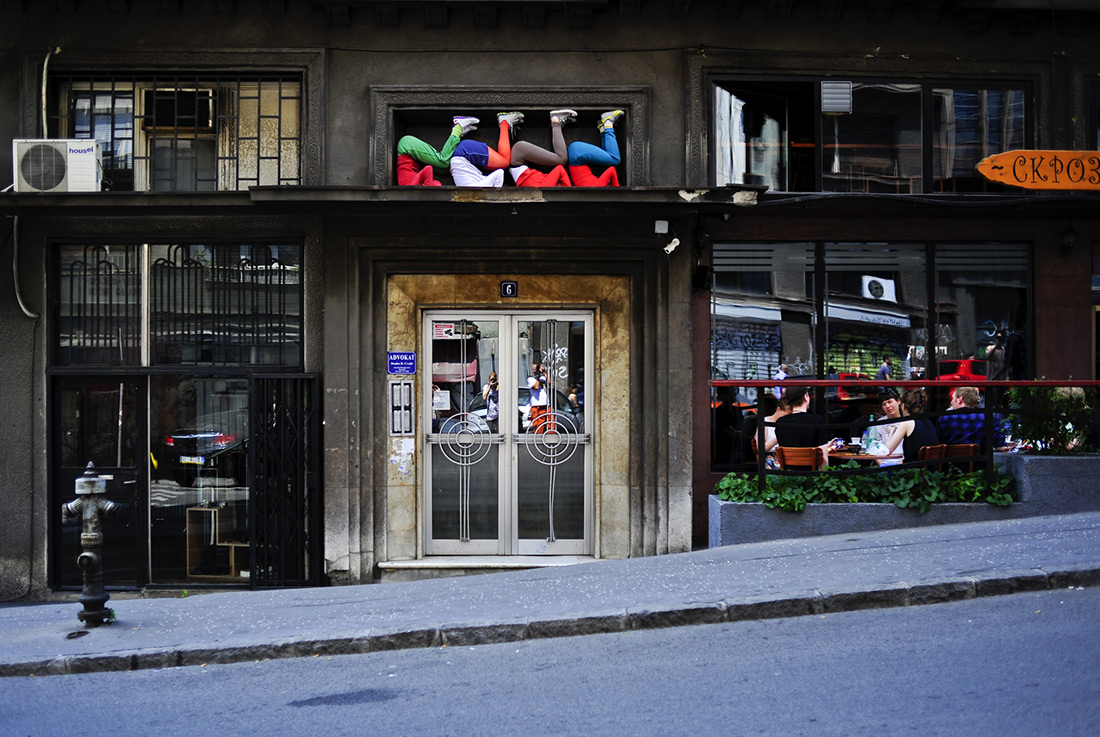 Performance Bodies in Urban Spaces, Mikser Festival, foto Bojana Janjic
Performance Bodies in Urban Spaces, Mikser Festival, foto Bojana Janjic
And for the end, what are your future plans?
Maja: We are planning to organize another Mikser festival in the spirit of sustainable future, and we are planning the project of transformation of the city concrete yards of the lower Doroćol and educational urban garden. While the exhibition of the winning projects of the Young Balkan Designers competition is touring the region, we are working on the next project phase – preparation of performances at the International Furniture Expo in Milan where we are planning to present the results of cooperation between young Balkan designers and regional furniture producers. At the same time we have also been developing, in cooperation with the United Nations Development Programme – UNDP, an experimental-educational programme on the topic of circular economy for elementary, secondary and vocational schools, and we are expecting to start a big international research project on the theme of innovative sustainable methodologies in city planning which aims to increase health and the quality of citizens’ life, which shall shift our activities from the Balkans to the rest of Europe.
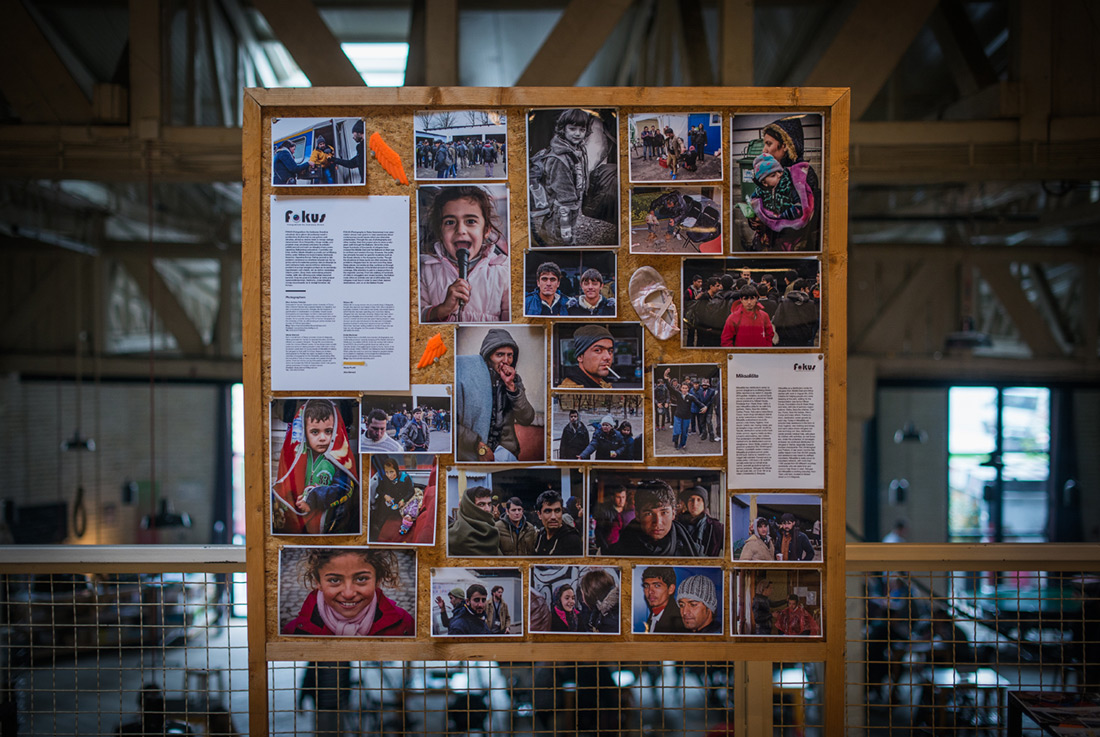 Refugee Aid Miksaliste
Refugee Aid Miksaliste
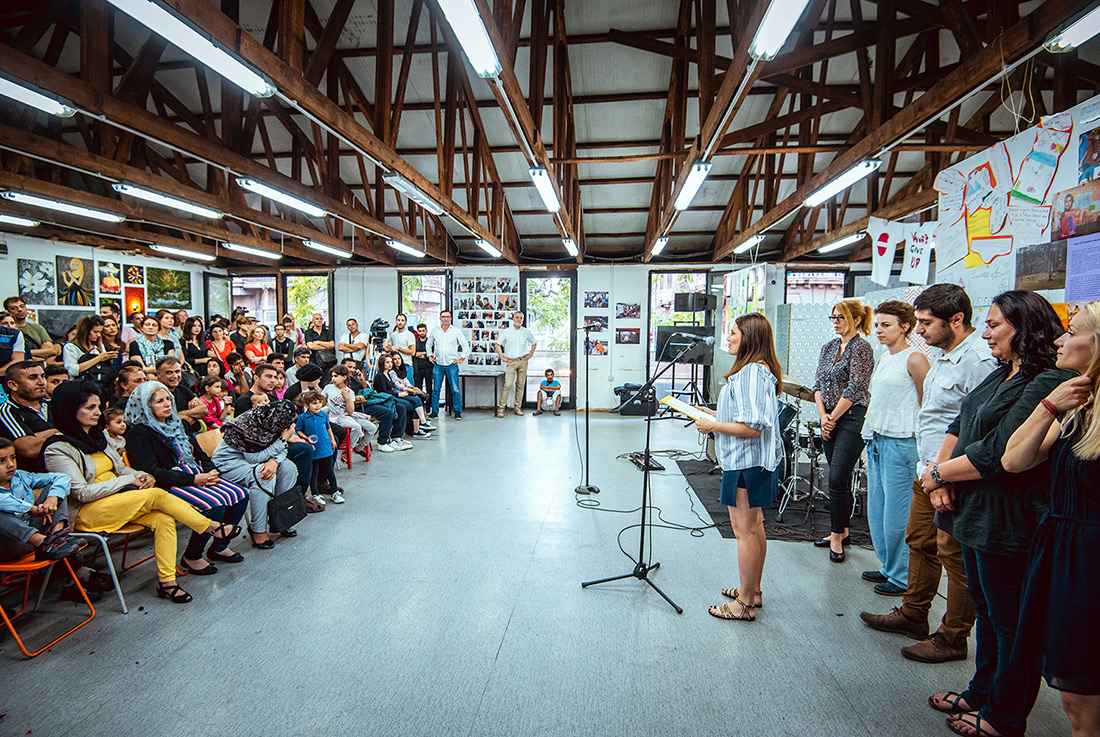 Refugee Aid Miksaliste
Refugee Aid Miksaliste
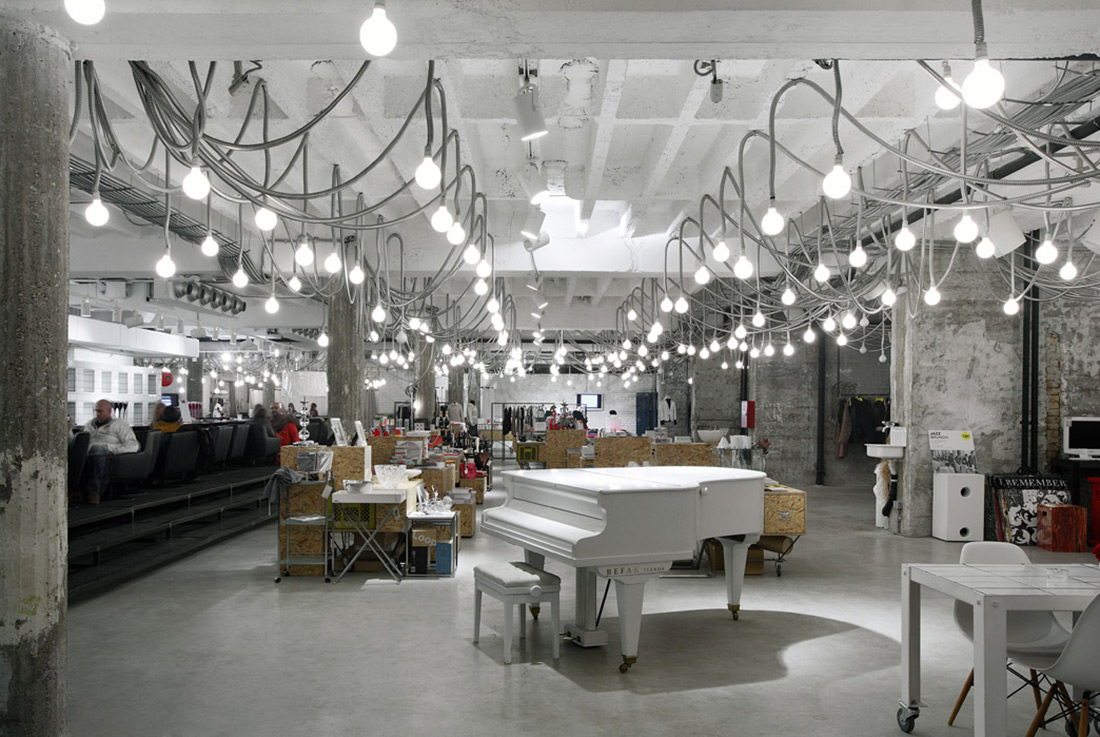 Supermarket concept place, designed by Maja Lalic and Remiks Studio
Supermarket concept place, designed by Maja Lalic and Remiks Studio
The interview with Maja Lalić & Ivan Lalić was carried out by Ivana Ljubanović.
BIG SEE VISIONARIES 2019
The Award is granted by Zavod Big to those individuals who enrich and inspire the world of creativity, tend to move forward by pushing design boundaries, and help to encourage the creative environment in the region of South-Eastern Europe. Their activities represent a significant contribution to the role of design in the region, and due to their efforts, the South-East European design has been put on the map of the greatest design achievements. We are all overwhelmed with emotion and deeply touched by these visionary leaders’ creative work which ignites our passions and steers us in the right direction to bring out the best in us.



